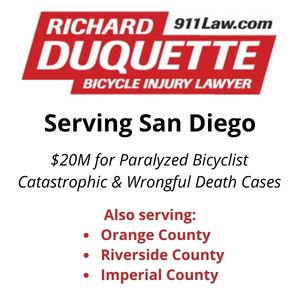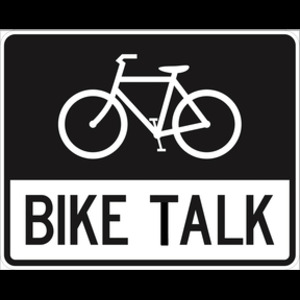Well that sucks.
I’ve ridden a bike for most of my adult life, in part, to avoid the heart disease that killed my father, and the diabetes my mother suffered from for over 40 years.
My heart is fine.
My mother developed Type 2 diabetes in her 40s, after struggling with her weight most of her adult life. And my grandmother on my dad’s side of the family suffered from Type 1 her entire life, even though she was so skinny she’d disappear if she turned sideways.
Despite that, I’d been assured by countless doctors over the years that my high fitness level, combined with a bout with hypoglycemia — basically, the opposite of diabetes — in my 20s meant I had little risk of developing the disease.
So much for that.
In retrospect, the first clue something was wrong came when my weight dropped from a muscular 185 to a still fit 160. Something I put off to the stress of dealing with the dramatic decline in income as my copywriting clients cut back on advertising, and the contacts I’ve built over my career were laid off or moved on to other jobs.
I also had trouble building and maintaining muscle, having to ride longer and harder just to stay at the same level, which I assumed was just part of getting older.
Then last summer, I started having difficulty sleeping at night and staying awake during the day, something I once again put off to stress.
I often found myself feeling too tired to ride, my mileage dropping from over a hundred miles a week to maybe 50 to 60 on a good month.
In fact, I was tired all the time. I would get up in the morning, walk the dog, then go back to sleep for another couple hours. And sometimes sleep again in the afternoon, and doze off with my computer on my lap while writing at night.
I sometimes found myself dressed and ready to ride, only to put my bike back up and go back for a nap. Even driving wasn’t an option, too tired to feel safe behind the wheel.
Note to motorists: If you’re not alert behind the wheel, you don’t belong there. Period.
Then after the past holiday season, things took a nose dive.
My weight dropped again, until I weighed just 150 pounds — something I hadn’t seen since I was a 5’2” defensive tackle in junior high school. And whatever muscle I had left melted away, taking my energy with it.
In other words, I lost my ass. Literally.
As well as every other muscle in my body, including those legs I’d proudly honed for over 30 years, until I looked more like my grandmother than I ever wanted.
I cancelled meetings, even ones I was supposed to lead. And stayed home planning to write or work on this site instead, only to accomplish little or nothing. After all, it’s hard to get any work done when you’re sleeping or too tired to think.
A trip to the doctor, followed by a blood test, only confirmed what, by then, I already knew.
I had inherited my mother’s illness, to go along with the devilish good looks and rapier wit I got from my dad.
I’m diabetic.
Type 2, to be exact. Although my doctor is reluctant to call it that because I’m so far out of the norm for that disease, dramatically underweight instead of over.
In the last 10 days, since I got the diagnosis, my life has changed dramatically.
I’ve gone from eating as much as I want because I knew I’d burn it off riding, to carefully structured meals with limited portions. From a diet rich in whole grains to one in which I have to count every carb.
I’ve gotten used to being hungry most of the time. As well as testing my blood multiple times a day to determine what effect what I last ate had on my blood sugar levels.
Meanwhile, I’d kill for a decent beer. Or a crappy one, for that matter.
And a cinnamon roll, please.
My already low energy levels have crashed; even walking the few blocks to the corner drugstore can be exhausting. Which means my bike sits in my office where it’s been since CicLAvia, waiting for the day I feel strong enough to get back on it.
And how I’m going to pay for it, I have no idea. Even with my wife’s insurance, I’ve added over $100 a month in prescription costs alone. Not to mention countless co-pays for all those doctor visits.
On the plus side, I’m not on insulin. Yet.
Between diet and medication, I’ve got my blood sugar down from a resting count north of 400 —over four times what it should be — to 250. Still dangerously high, but moving in the right direction. And I’ll be meeting with a dietician this week to try and work out a meal plan that will allow me to put weight back on and get back into shape without causing my levels to spike.
And maybe I won’t be so hungry all the time.
On the other hand, I’m feeling, if not good, at least better than I have in months, and back to doing most of my sleeping at night and in bed. And I’m hoping to be back on my bike in time for Bike Week next month.
Although all most of my bikewear now falls off my overly skinny ass. So if any bike shops or manufacturers want to trade some smaller kits for an ad on here, let me know.
As for the long-term, my doctor says my chances of overcoming this are somewhere south of zero. Which means, at best, a lifetime of glucose monitoring and watching what I eat; at worst, the same insulin dependency my mother lived with until the day she died.
But it is a manageable condition. And something I can live it.
Which is good, since I may not have any choice.
One thing bicycling has taught me, though, is that I can do anything I set my mind to. Whether it’s getting up that hill or somehow pedaling back home when I’m too exhausted to turn the crank another time.
So I will be back on my bike. If not now, then soon. And riding at the same level I always have. If not better.
And if this can be beaten, I will.
If not, it sure as hell isn’t going to beat me.






